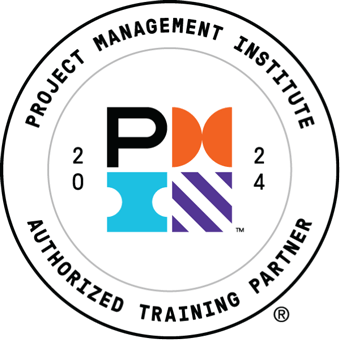Features
Premium video tutorials
Award-winning instructors
Personalized learning
Get certified
Learn at your own pace
Mobile (learn on-the-go)
Unlimited tests and quizzes
Regularly updated content
Overview
Motivated Scrum team members are in high demand in many industries including software development, marketing, education and design. Scrum team members form a self-organizing and empowered team responsible for delivering a high quality outcome, and are integral to project success.
This Agile Scrum training online course will help you make valuable contributions to the Scrum team, stack your resume with skills and rise the ranks of the corporate ladder.
Highlights:
- 21 lessons.
- Understand the roles of Scrum Master and Scrum Team.
- Know the steps in planning and executing an Agile/Scrum project.
- Understand the organizational impact of using Agile/Scrum for project management.
- Recognize the differences between Sequential, Concurrent, and Agile project management and know when to use each approach.
- Project Management Institute's Agile Certified Practitioner Handbook.
- Earn 10.5 contact hours or PDUs toward your project management education for certification with PMI.
Once enrolled, our friendly support team and tutors are here to help with any course related inquiries.

- 720p
- 540p
- 360p
- 0.50x
- 0.75x
- 1.00x
- 1.25x
- 1.50x
- 1.75x
- 2.00x
Summary
Instructor
Syllabus
Project Management Approaches Free Lesson
1
Project Management Methodology
Agile/Scrum is a project management methodology. This means that it provides a set of tools and processes that can be used to organize and manage the project activities.
2
Sequential Methodology
A sequential project management methodology is a traditional approach to project management. It minimizes risk, but this conservative approach can be lengthy and expensive.
3
Concurrent Methodology
The concurrent project management methodology is a collaborative approach. It can significantly accelerate a project as compared to the sequential approach, but it is much more difficult to project manage.
4
Agile/Scrum Methodology
The Agile/Scrum project management methodology is an iterative approach that requires fewer resources than other approaches.
5
Project Management Methodology Comparisons
The three approaches presented are three very different ways of managing a project. Understanding the differences will enable a business to select the best approach for their projects.
Agile/Scrum Elements Free Lesson
1
Sprint – Scrum Process
The Agile/Scrum methodology is a structured project management methodology. It follows a prescribed process that includes Sprints and Scrums.
2
Sprint – Scrum Meetings
Within the Agile/Scrum project management methodology there are a set of meetings that are used to plan and manage the process. Rather than analytical tools, this methodology relies heavily on the use of specific targeted meetings.
3
Story Cards
Story Cards, also known as Product Backlog Items (PBIs) are the technique used for documenting project scope, quality requirements, estimates and priority of the deliverables in an Agile/Scrum project.
4
Product Backlog
The product backlog is the prioritized list of project deliverables.
5
Sprint – Scrum Team
The Scrum Team performs the project work conducted during a Sprint on an Agile/Scrum project.
6
Scrum Master
The Scrum Master is the individual who is responsible for facilitating the Agile/Scrum Sprint process.
7
Sprint Controls
Sprint Controls are the project management tools that are used by the Scrum Master and Scrum Team to assess performance.
Process Steps
1
Step 0: Vision
A clear goal or vision is essential to project success. That is as true with Agile/Scrum as with traditional projects.
2
Step 1: Preparing the Product Backlog
Preparing the Product Backlog is the first step in the Agile/Scrum Sprint methodology. It includes creating and prioritizing all the Story Cards.
3
Step 2: Assign Scrum Team
To do the work of the Sprint, a Scrum Team must be assigned.
4
Step 3: Sprint Planning
The Sprint is initiated with a Sprint Planning Session that organizes the work, estimates the effort, and initializes the Scrum Board and Burn Down Chart.
5
Step 4: Sprint Execution
Sprint execution is the actual work of the Scrum team during the Sprint to accomplish the tasks needed to complete each Story in the Sprint Backlog.
6
Step 5: Sprint Demonstration
The Sprint Demonstration is the formal meeting where the Scrum Team demonstrates to the Product Owner the performance of each deliverable that was created during the Sprint.
7
Step 7: Sprint Retrospective
The Sprint Retrospective is a lessons learned meeting with a focus of identifying opportunities to improve the performance and management of the next Sprint.
Managing the Sprint Free Lesson
1
Self-Organizing Teams
Scrum Teams do not rely on assigned project management roles, rather the team organizes and manages itself.
2
Scrum Meetings
During a Sprint, the Scrum Team meets daily at a Scrum Meeting to provide status on progress.





